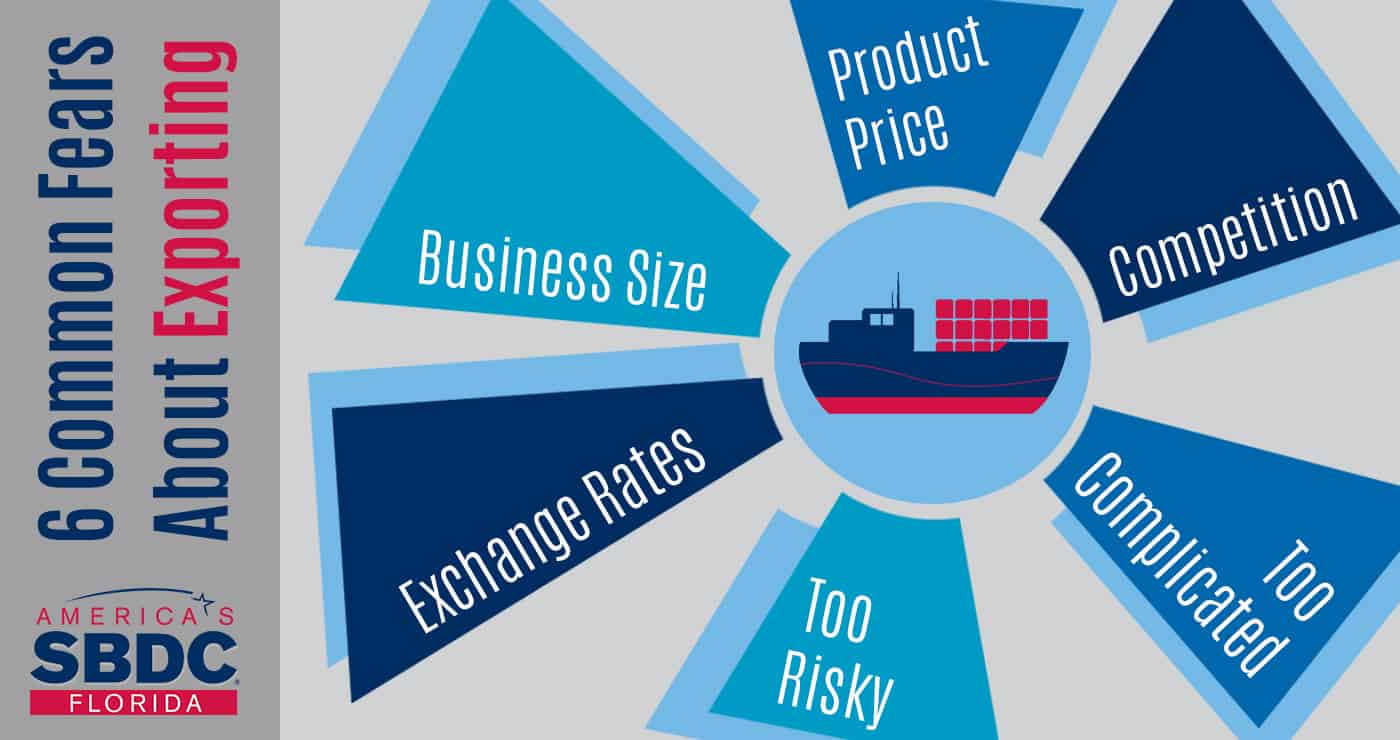6 Most Common Fears About Exporting and How to Overcome Them
Is exporting a safe move for my business? You might be asking yourself this very question if you have a large international order, but do not know where to start. When faced with the challenge and limited information, you might be tempted to give up on that international sale altogether. Instead, think through the possibility of exporting by first taking a closer look at what is behind the decision process itself.
John P. O’Doherty, Director of the Caltech Brain Imaging Center is known for helping people think through new concepts and make good choices. He discusses in the Watson Lecture Preview how having the correct information and then learning from one’s experience is “goal directed” thought. He theorizes that the less information someone has to go on, the more likely they are to make irrational and erratic choices or what he would call, “habit-controlled” responses to environmental cues.
This theory may explain why many people give up on exporting before they really try. According to O’Doherty, neuroimaging shows that as situations such as new business ventures become more uncertain, the brain shifts control over to the limbic system where negative emotions can cloud thinking. Fortunately, one can engage other brain regions to work towards more constructive thought processes.
Below, I examine the six most common fears associated with exporting and the solutions available to take your business global.
- My business is too small.
Companies off all sizes can export. The key is having an open mind to expanding your business and the financial health to make it possible. After securing sales overseas, you may need to hire an international sales manager with foreign experience to manage the new accounts.
- I can’t compete.
Maybe your industry is saturated in the United States and too many competitors are affecting your bottom line. This may be a great time to consider other markets. By exporting, you can gain market share in a country that would value the “Made in the USA” brand, and until now has little of what you sell.
- My product is too expensive for foreign markets.
Some products are considered a luxury good or otherwise heavily taxed in foreign markets. This should not deter you from exporting. Most likely a similar product to yours is already in global markets selling at much more than what it goes for in the US. Customers around the globe with an appetite for U.S. quality and ingenuity want the best and are willing to pay for it.
- Exchange rates are not in my favor.
Financial news outlets thrive off of the fear generated from ever-changing exchange rates. While a strong U.S. dollar does reduce the competitiveness of U.S. goods compared to the local market, buyers do not solely base their decision on price. When the dollar becomes expensive abroad, buyers become aware that their purchasing power has decreased, and make adjustments to their purchases and prices to accommodate. A strong dollar and a higher price to an importer sometimes means an increase in perceived quality. Therefore, it is in the interest of the U.S. to have a strong currency as it incentivizes innovative behavior, and more productive and competitive businesses that can command higher prices for their goods.
- It’s too risky.
Maybe your concern is that you have too much to lose to start exporting. While it is true that an exporter can be liable for not properly documenting international shipments, fear of getting the paperwork wrong should not keep you stateside. The good thing about exporting is that you have many options in choosing a freight forwarder. Having their assistance in filing export documentation is invaluable. Once they have showed you through the process a few times, you will have export compliance down pat.
- It’s too complicated.
There are many components to exporting that are very time consuming. If you try to learn everything yourself first, you may not ever start. Instead, build a support team to assist you in the process of exporting. Organizations like the Florida SBDC at USF, SelectFlorida and the Department of Commerce can assist you in identifying the best export markets and top clients for your products and services.
Though it is natural to have fear when faced with the new challenge of exporting, focus on “goal-directed” thoughts and rely on industry experts to orient you through the process of selling in new markets.
[blog_list thumb=”medium” showposts=”1″ post_content=”full” category_in=”343″ disable=”image,meta,more”]





